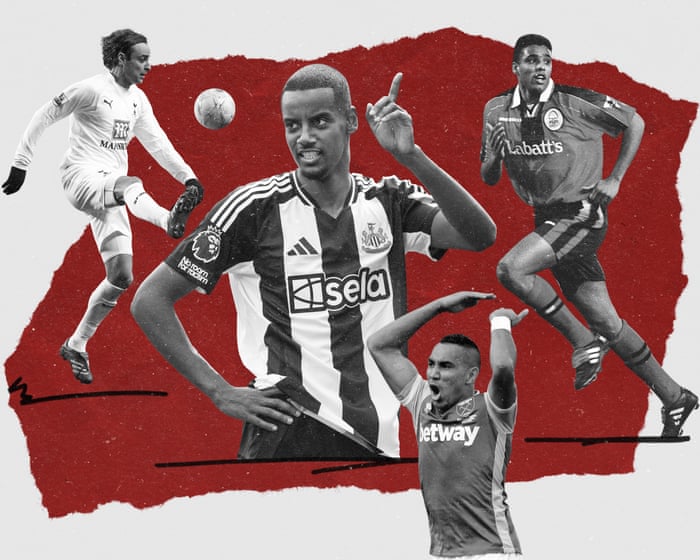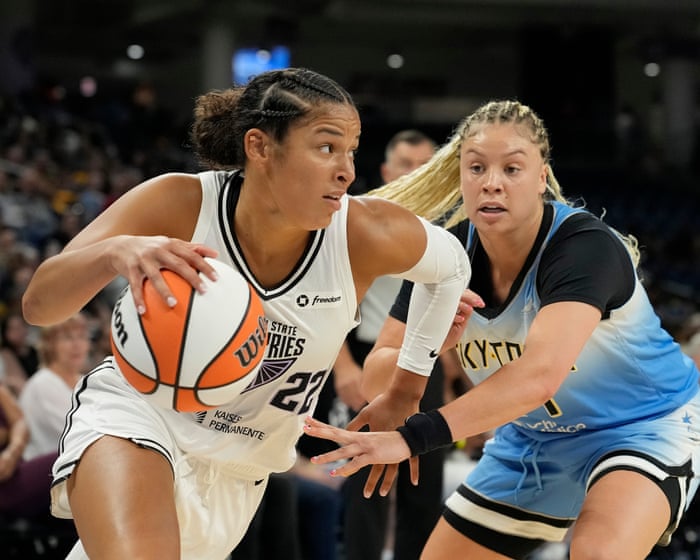After Alexander Isak posted a controversial message on Instagram as part of his escalating efforts to force a move away from Newcastle, we examine how other Premier League players have tried to push for bitter exits from their clubs. Some succeeded, while others did not.
Pierre van Hooijdonk
Van Hooijdonk was instrumental in Nottingham Forest’s promotion to the Premier League in 1997–98, scoring 29 goals in 42 league games. However, the mood quickly soured when the Dutch striker grew frustrated with the club’s failure to strengthen the squad and their decision to sell key players like Kevin Campbell and Colin Cooper. After his transfer request was rejected, he went on strike and returned to the Netherlands in August. He stayed fit by training with his former club, NAC Breda, before eventually returning to Forest in November to end the standoff. The club finished bottom, were relegated, and did not return to the Premier League for 23 years.
William Gallas
Chelsea released a statement claiming Gallas threatened to score own goals if selected for the 2006–07 season opener against Manchester City, and that he refused to play in an FA Cup semi-final against Liverpool as part of his efforts to leave. He eventually moved to Arsenal on deadline day in September 2006. Gallas denied the accusations, saying, “If people want to hide behind false accusations to explain why I left and calm the fans, they can.” Regardless, the defender got his wish, with his move to Arsenal paving the way for Ashley Cole to join Chelsea.
Dimitar Berbatov
Berbatov wanted to fulfill his “dream” of joining Manchester United, but Tottenham were reluctant to sell. After a meeting with manager Juande Ramos, Berbatov was left out of the squad for a match against Sunderland in August 2008, with Ramos stating the striker wasn’t “focused enough” and would harm team morale. Berbatov eventually got his move, joining United on deadline day in a £31 million deal.
Carlos Tevez
Tensions at Manchester City escalated when Tevez refused to warm up during a Champions League match against Bayern Munich in September 2011. Manager Roberto Mancini declared the Argentine “finished” at the club. The relationship never recovered, especially after Tevez’s agent, Kia Joorabchian, questioned the sincerity of any apology. Tevez took an unsanctioned break in Argentina, costing him £9.3 million in fines. He returned in February and apologized after proposed moves to Milan, Inter, or Paris Saint-Germain failed to materialize.
Peter Odemwingie
Sometimes a direct approach works—unless cameras are rolling and the transfer falls through. Few can forget Odemwingie parked outside Loftus Road on deadline day in 2013, trying to finalize a move from West Brom to QPR. Believing a deal was done, the Nigerian spoke to Sky Sports News from his car before eventually driving back to the Midlands when the transfer collapsed. He later described it as a difficult and angry period.In a 2024 interview with The Guardian, Demwingie recalled the incident, saying, “It was very embarrassing in many ways.”
Peter Odemwingie (left) in happier times, before his infamous failed attempt to leave West Brom. Photo: Darren Staples/Reuters
Saido Berahino
After scoring 20 goals for West Brom in the 2014–15 season, Berahino was in high demand. Mauricio Pochettino was eager to sign the striker for Tottenham and made two offers, both rejected by West Brom chairman Jeremy Peace. Berahino responded by tweeting that he would never play for Peace again and then went on strike. Despite his strong desire to join Spurs, his aggressive tactics didn’t pay off. West Brom, especially Peace, held firm, and Berahino stayed put before eventually moving to Stoke in 2017. Now 32, he is currently without a club after a stint with Tabor Sežana in Slovenia. Any interest, Thomas Frank?
Dimitri Payet
Payet’s case shows that refusing to play can sometimes force a move. In January 2017, the Frenchman wanted to leave West Ham for Marseille, so he stopped attending training and refused to play, despite having been the team’s standout star the previous season. His teammates disapproved of his behavior and removed him from their WhatsApp group. West Ham’s manager at the time, Slaven Bilić, insisted Payet was still part of his plans, saying, “We do not want to sell him. We’ve said hundreds of times we don’t want to sell our best players. We want to keep them.” But it made no difference—Payet completed a £25 million move to Marseille by the end of the month.
Dimitri Payet did not endear himself to his teammates or West Ham fans. Photo: Clive Rose/Getty Images
Cristiano Ronaldo
They say you should never go back, and Ronaldo’s surprise return to Manchester United in 2021 proved that true. The move was a disaster—Ronaldo was no longer the player he once was. His relationship with manager Erik ten Hag deteriorated badly. He left the stadium early after being substituted in a pre-season friendly against Rayo Vallecano, twice refused to come on as a substitute in a match against Tottenham, and then gave an explosive interview to Piers Morgan in which he claimed the club had “betrayed” him. After that, there was no way back. Ronaldo soon joined Saudi Arabian club Al-Nassr, where he remains today—happier and far wealthier.
Frequently Asked Questions
Of course Here is a list of FAQs about downing tools in the Premier League designed to be clear and helpful for all levels of interest
Beginner Questions
Q What does downing tools mean in football
A Its a phrase used when a player essentially goes on strike They might refuse to play train poorly or publicly criticize the club to force a move to a different team
Q Why would a player down tools
A The main reason is to force a transfer They might want to join a bigger club get a higher salary or play in a different league Its a way to pressure their current club into selling them
Q Is downing tools the same as handing in a transfer request
A No they are different A transfer request is a formal written notice that a player wants to leave Downing tools is an informal and often disruptive action taken after a request has been rejected or ignored
Q Can a club fine a player for this
A Yes absolutely Clubs can fine players for breaches of contract which includes refusing to train or play They can levy heavy fines for each week of misconduct
Advanced Specific Questions
Q What are the risks for a player who does this
A They risk damaging their reputation with fans and other clubs being fined heavily being frozen out of the team entirely and in extreme cases having their contract terminated
Q Does this strategy usually work
A It often does but its not guaranteed If a club receives a huge offer they cant refuse they will sell However if no acceptable offer comes in the club can dig in and the player can be left in a very difficult position
Q Whats the risk for the club
A The club risks having an unhappy disruptive influence in the dressing room devaluing an asset if the situation drags on and creating a public relations nightmare with angry fans
Q Are there any famous examples of this in the Premier League
A Yes some of the most notorious cases include
Dimitar Berbatov Missed training and was left out of the team before his big move to Manchester United



